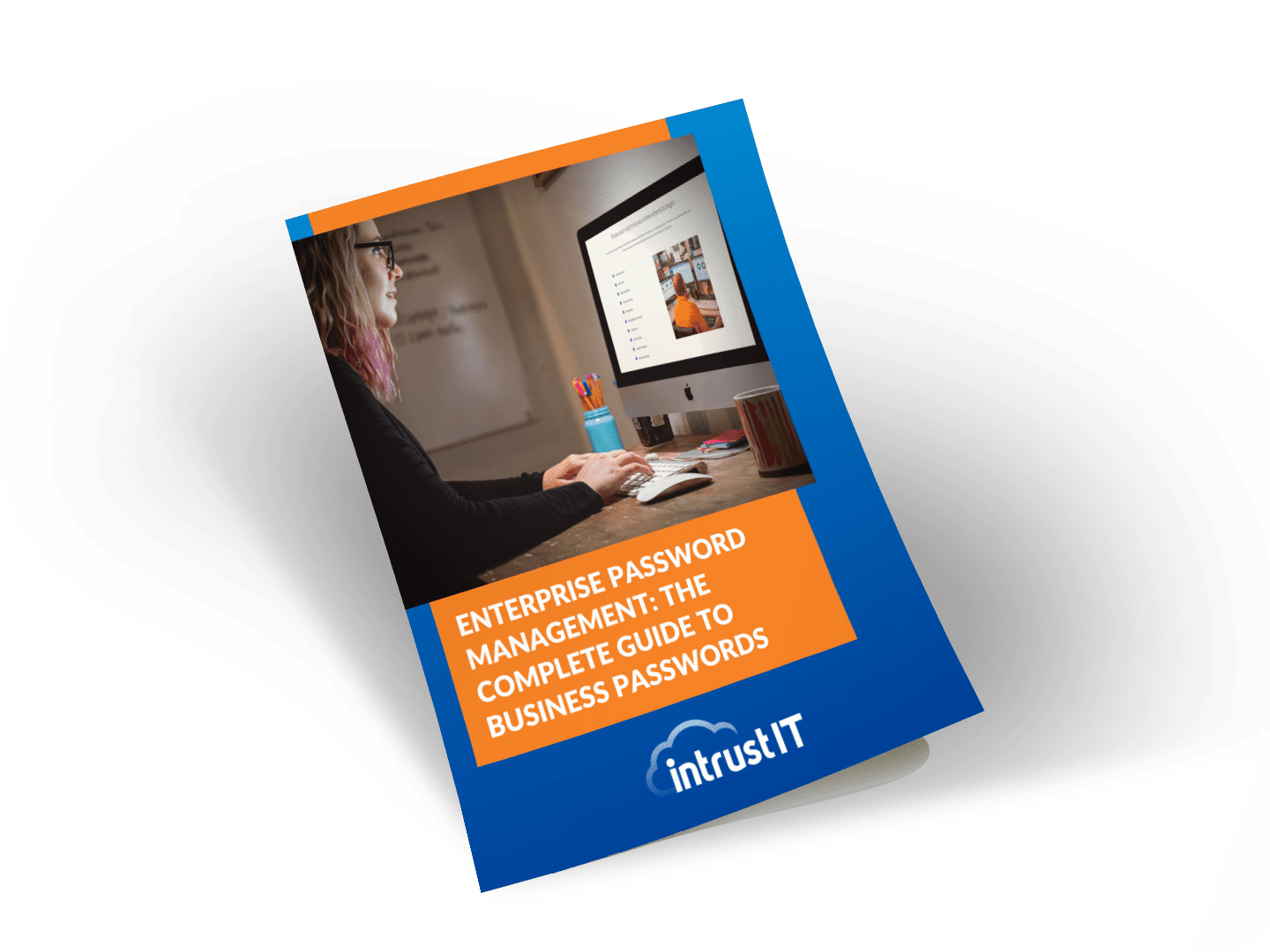How One Client Saved 28K with Microsoft Office 365 Auditing

We saved one client over $28,000 per year on Microsoft Office 365 licenses through our Office 365 auditing process.
Here at Intrust, almost all of our clients use Microsoft Office 365 licensing for some combination of email hosting, Office software, and Dynamics CRM. Sometimes clients who had Microsoft 365 prior to their relationship with Intrust IT not managing it correctly, especially when it came to licensing.
As an account manager here at Intrust, I have been working with a new client over the past several months. The client has several hundred accounts in Microsoft 365 that utilize an array of enterprise email, Office software, and Dynamics CRM licensing. They have historically pre-paid yearly for all their licensing needs.
After Intrust performed Microsoft Office 365 auditing, we realized that they were overspending on unneeded licenses by a substantial sum. Here’s why:
Lack of Proper User Termination Processes with Office 365
The first instance of over-licensing came about because of poor user termination practices. Here at Intrust IT, our standard for user account terminations is to do the following:
- Disable the domain user account
- Convert the Microsoft 365 account to a shared mailbox for retention, delegation or forwarding
- Remove the License associated
On the monthly billing plan for clients who get their Microsoft 365 licenses directly through us, taking these steps provides the benefit of reflecting in real time on a month-to-month basis.
If licenses are removed, those savings are reflected on the next month’s invoice without resulting in unassigned licenses sitting idle. This can be especially beneficial for a large company.
With this particular client, we found dozens of accounts that had been disabled over the years, and had their access blocked, but still had licenses applied.
Not Using Microsoft Office 365 Shared Mailbox Options
The second instance of over-licensing came from a lack of using Microsoft 365’s shared mailbox features. A shared mailbox in Office 365 is free and does not require a license.
For example, emails that are always forwarded or delegated do not require a full user license. Instead, licensed user accounts can be granted either forwarding from the shared mailbox and/or delegation to the shared mailbox. Shared mailboxes have all the functionality of a user mailbox with the exception of direct sign in.
Any mail received shows up in the forwarded or delegated user’s email. The delegated user(s) can delete, filter, forward and reply as the shared mailbox as they would their own.
With this particular client, there were dozens of accounts that had been created as Microsoft 365 licenses for mailboxes. However, only forwarding or delegation had been applied to these accounts.
By converting all of those accounts to shared mailboxes, we greatly cut the number of licenses needed.
Overpaying for MS Dynamics CRM with New Pricing Options
The third and final instance of licensing adjustments came as a result of Microsoft’s updated Dynamics CRM pricing model.
Previously there were two primary options for Dynamics CRM licensing: Professional and Basic. During a pricing overhaul, Microsoft added an Enterprise Admin license, Role Specific licenses and a Team Member license with basic functionality for $8 per month.
With this particular client, the vast majority of Dynamics CRM users were able to fully function as needed using the Team Member licenses, which saved them another substantial sum.
Microsoft Office 365 Audit Savings
Because of the Microsoft Office 365 auditing, the client saved approximately $28,212 over the prior year as follows:
- $18,000 in savings for 45 unneeded Office 365 Enterprise E1 Licenses and 57 unneeded Office 365 Enterprise E3 Licenses.
- $10,212 in savings for Dynamics CRM licensing
In the year prior to the conversion, the client’s licensing looked like this:
Following the removal of licenses assigned to inactive users, conversion of licensed accounts to shared mailboxes, and implementation of Microsoft 365’s new Dynamics CRM model, for the next year the client’s licensing will look like this:
Do you need Office 365 Auditing?
If your company utilizes Microsoft 365 for any form of licensing or hosting, a thorough audit of your current licenses will ensure you are only paying what you need to.
Share this Blog

Is Your Name or Birthday a Part of Your Password?
If so, you’re a part of the 59 percent of people who don’t follow proper password hygiene. More than 70 percent of passwords are used for more than one system, meaning if cybercriminals crack one, they can access a lot more accounts.
Our free Enterprise Password Management Guide will give you the best password hygiene practices to help you secure your computer and your business.
Download the Guide
Explore the Latest Trends in IT

Business Continuity Plan Template for Municipalities

Cybersecurity Strategies for Municipalities: 8 Expert Tips

Business Continuity Guide for City Officials




